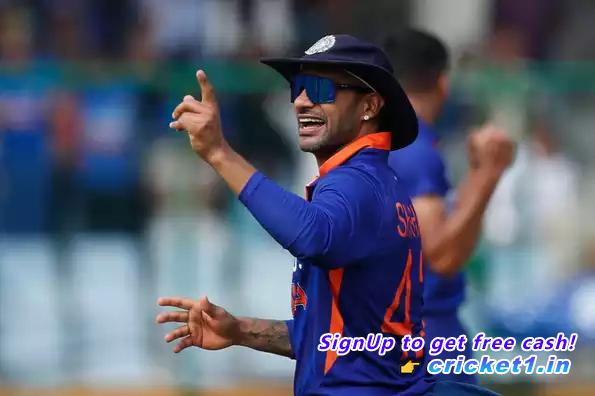
Renowned Indian cricketer Shikhar Dhawan has announced his retirement from international and domestic cricket with immediate effect, marking the end of an illustrious career that spanned over 13 years. The southpaw, revered for his aggressive batting style and flamboyant personality, made the announcement via social media, bringing an emotional close to a journey that saw him play 34 Test matches, 167 One Day Internationals (ODIs), and 68 Twenty20 Internationals (T20Is) for India. Throughout his career, he amassed a formidable 2315 runs in Tests, 6793 runs in ODIs, and 1579 runs in T20Is.
“It’s important to turn the page to move forward in a story, and in life. That’s why I am announcing my retirement from international and domestic cricket,” Dhawan expressed in his retirement video. “I’ve told myself to not feel sad that you won’t play for India again, but feel happy that you played for the country.”
At 38, Dhawan’s decision to retire was greatly influenced by his recent inactivity in the international arena. His last appearance for India was in an ODI match against Bangladesh in Chattogram in December 2022, while his last T20I came against Sri Lanka in July 2021. Dhawan had not represented India in a Test match since 2018. His most recent competitive outing was for the Punjab Kings in the Indian Premier League (IPL) 2024 against the Sunrisers Hyderabad, a match that he could not complete due to an injury.
Throughout his career, Dhawan has been a beacon of consistency and flair. He shot to fame during the 2004 Under-19 World Cup, where he made an indelible mark by scoring three centuries and accumulating 505 runs. Alongside notable players like Virender Sehwag and Gautam Gambhir, Dhawan was an integral part of a potent Delhi batting lineup. Known for his powerful offside play, the left-hander eventually made his ODI debut for India in 2010 against Australia, although it was an outing he’d likely want to forget as he was dismissed for a duck.
Contrastingly, his Test debut in March 2013 against Australia at Mohali was nothing short of spectacular. Dhawan smashed the fastest century on Test debut, scoring a ton in just 85 balls.
. This remarkable achievement kickstarted a memorable 2013 for Dhawan as he formed a crucial opening partnership with Rohit Sharma. Together, they were instrumental in India clinching the Champions Trophy in England. Dhawan was the tournament’s second-highest run-scorer with 363 runs and two centuries, reinforcing his reputation as a big-match player.
One of the highlights of Dhawan’s career came during the 2015 Cricket World Cup. His 137-run masterclass against South Africa at the Melbourne Cricket Ground (MCG) saw him take on elite bowlers like Morne Morkel, Dale Steyn, Wayne Parnell, and Vernon Philander. His status as a dependable performer in ICC events was further cemented during the 2019 World Cup when he scored a century against Australia, although a hairline fracture on his thumb prematurely ended his campaign.
In IPL history, Dhawan’s contribution is immense. He scored 6769 runs over his 222-game IPL career and was part of the Sunrisers Hyderabad team that won the championship in 2016, forming a dynamic opening pair with David Warner. However, as the years passed, Dhawan found himself gradually sidelined from the international roster.
Aside from his batting prowess, Dhawan also had leadership stints. He captained India in 15 matches (12 ODIs and three T20Is) and led 33 games for two IPL franchises – Punjab Kings and Sunrisers Hyderabad – across the IPL and the erstwhile Champions League T20. With India, he achieved a commendable win-loss record of 8-5 (with two matches yielding no results), leading India to series victories against Sri Lanka in 2021, and the West Indies as well as South Africa in 2022. However, his experiences as an IPL captain were less fruitful, yielding a mixed result of 13 wins and 20 defeats.
As he steps away from the cricketing field, Dhawan leaves behind a rich legacy of accomplishments, thrilling performances, and cherished memories. He expressed profound gratitude towards his family, fans, childhood coaches, and the various teams he played for in both the Indian national squad and the IPL. His retirement marks the end of an era for one of India’s most beloved cricketing figures, but his impact on the sport will be remembered for generations.

